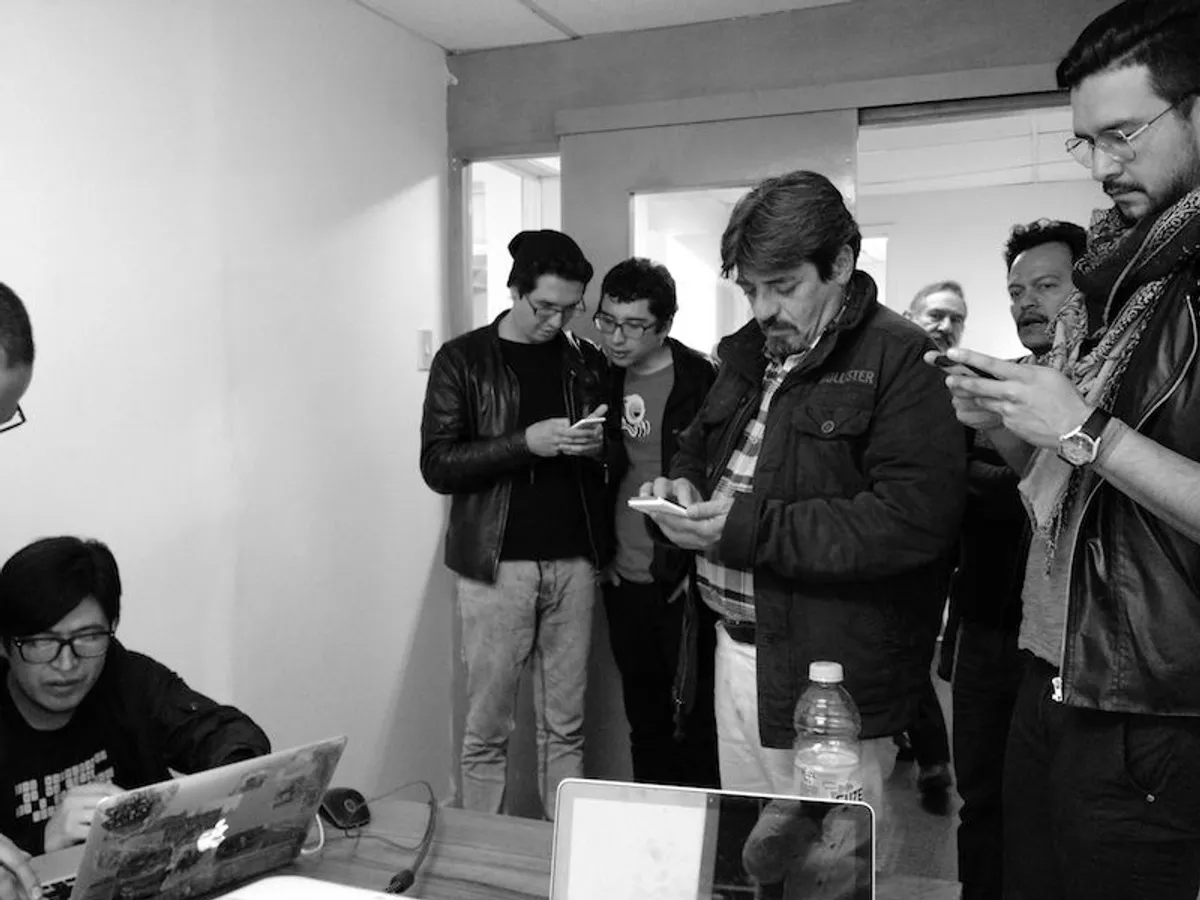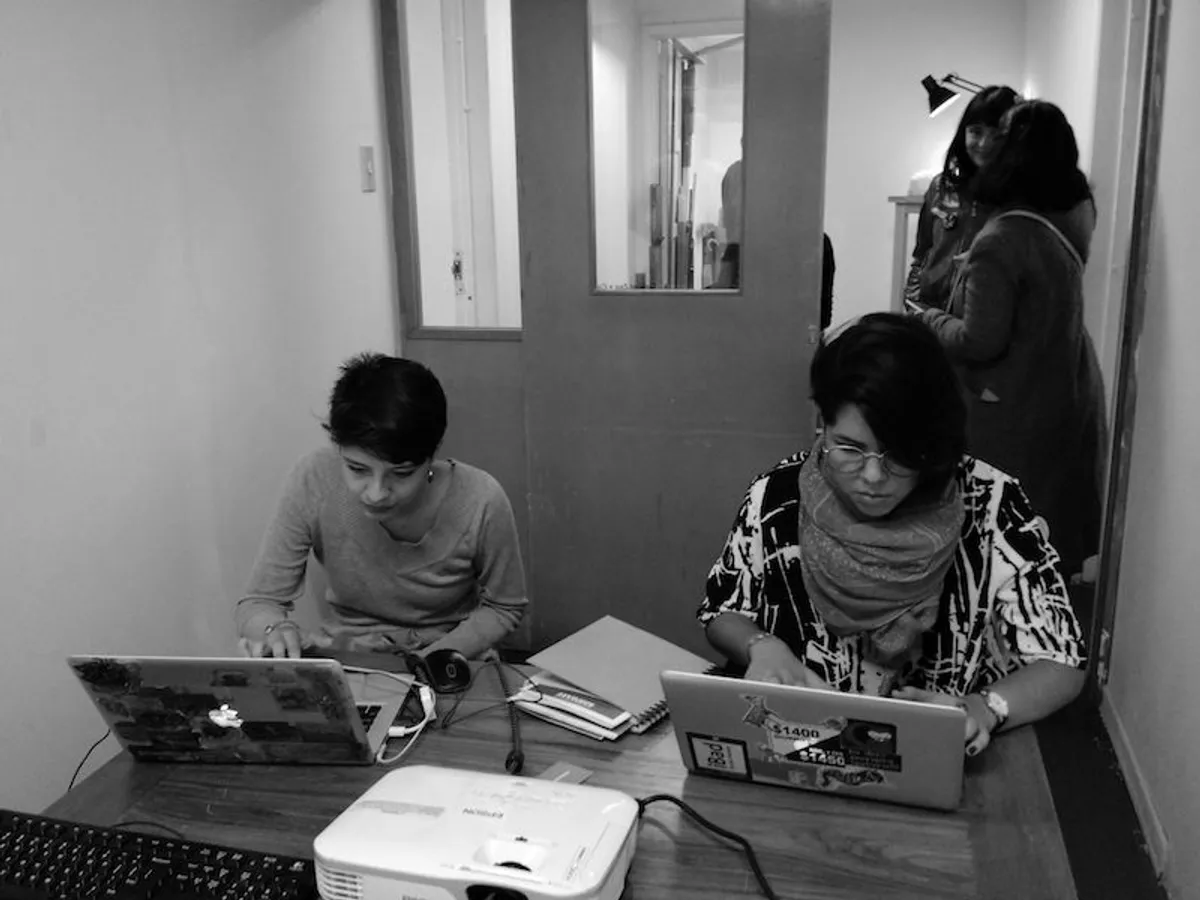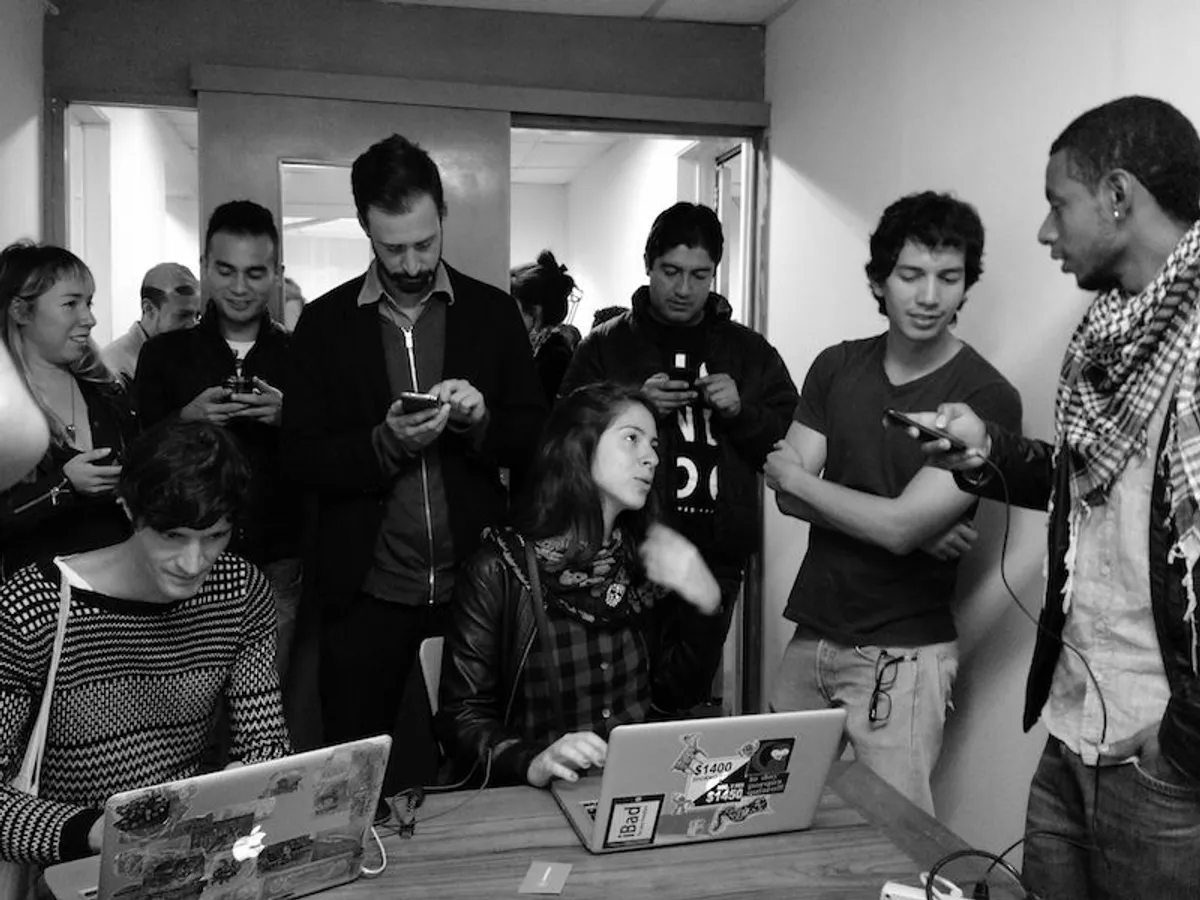artes / artworks
Free Beer



El adjetivo Free en Inglés puede significar tanto gratis como libre. Realizar esta diferenciación no tiene sentido en el lenguaje español pues precisamente existen dos palabras diferentes para referirse a las cosas entregadas sin remuneración a cambio y al concepto de libertad. Para los movimientos asociados al desarrollo y promoción de software de código abierto, el uso dado a free será el indicador del lugar desde el cual se piensa el ethos del software. Richard Stallman, a quien se considera el padre del movimiento por la liberación del código fuente, hace explícita la importancia de esta diferencia en su ya legendaria frase: “free as in free speech, not as in free beer”. Un ejemplo que puede aclarar esta tensión son los populares servicios de tecnología gratuitos de internet tales como Google, Facebook y demás los cuales funcionan de la manera “free beer”, a diferencia al sistema operativo Linux que está del lado del “free speech”.
Una frase de sabiduría popular colombiana dice nada es gratis en esta vida. Si pensamos en los servicios prestados gratuitamente en Internet podemos intuir que algo debe generar el capital necesario para solventar los costos de mantenimiento de las plataformas tecnológicas y las ganancias que atraen a inversionistas en las bolsas. Ese costo invisible de lo gratuito son los datos producidos y entregados por los usuarios al consumir estos servicios, los cuales son capitalizados de diferentes maneras por los empresarios dueños del sistema.
Free Beer es una acción propuesta para el día de la inauguración de la muestra Vida no Orgánica en Permanente que usó esta tensión entre lo gratuito y lo libre para construir un perfil socioeconómico de los asistentes a la muestra y por ende al barrio San Felipe, el cual está sufriendo un proceso acelerado de transformación donde la producción, distribución y consumo de productos culturales es el principal estandarte para impulsar este proceso.
Al proponer esta acción surge la pregunta: Quienes son estos actores que hacen presencia en San Felipe?. Para intentar responder este interrogante diseñamos una serie de preguntas que intentan obtener información personal de los asistentes a cambio de cerveza, que será entregada gratuitamente luego de responder el cuestionario. Al responder cada una de las preguntas, los usuarios aceptarán automáticamente los términos de uso y participación en el proyecto, en los cuales ceden de manera unilateral y sin contraprestación económica a cambio, los derechos de uso de los datos entregados para ser utilizados y presentados de diferentes maneras y medios a perpetuidad.
La información recolectada será almacenada en una base de datos. De manera simultánea en el espacio de la muestra, una serie de visualizaciones de la información acopiada se proyectó permitiendo ver en tiempo real estadísticas de los datos entregados por los espectadores.
Colaboración con Camilo Martínez
The adjective Free in English can mean both free and gratis. Making this differentiation does not make sense in the Spanish language because there are precisely two different words to refer to things given without remuneration in return and to the concept of freedom. For the movements associated with the development and promotion of open source software, the use given to free will be the indicator of the place from which the software ethos is thought of. Richard Stallman, who is considered the father of the source code liberation movement, makes the importance of this difference explicit in his now legendary phrase: "free as in free speech, not as in free beer". An example that can clarify this tension are the popular free internet technology services such as Google, Facebook and others which work in the "free beer" way, unlike the Linux operating system which is on the side of "free speech".
A phrase of popular Colombian wisdom says that nothing is free in this life. If we think about the services provided for free on the Internet, we can intuit that something must generate the necessary capital to cover the maintenance costs of the technological platforms and the profits that attract investors in the stock market. This invisible cost of free services is the data produced and delivered by users when consuming these services, which are capitalized in different ways by the entrepreneurs who own the system.
Free Beer is an action proposed for the opening day of the exhibition Vida no Orgánica in Permanente that used this tension between the free and the free to build a socioeconomic profile of those attending the exhibition and therefore the San Felipe neighborhood, which is undergoing an accelerated process of transformation where the production, distribution and consumption of cultural products is the main banner to promote this process.
When proposing this action, the question arises: Who are these actors that are present in San Felipe? To try to answer this question we designed a series of questions that try to obtain personal information from the attendees in exchange for beer, which will be given for free after answering the questionnaire. By answering each of the questions, users will automatically accept the terms of use and participation in the project, in which they unilaterally and without financial compensation in return, grant the rights to use the data provided to be used and presented in different ways and media in perpetuity.
The information collected will be stored in a database. Simultaneously in the exhibition space, a series of visualizations of the collected information was projected allowing to see in real time statistics of the data provided by the spectators.
Collaboration with Camilo Martínez